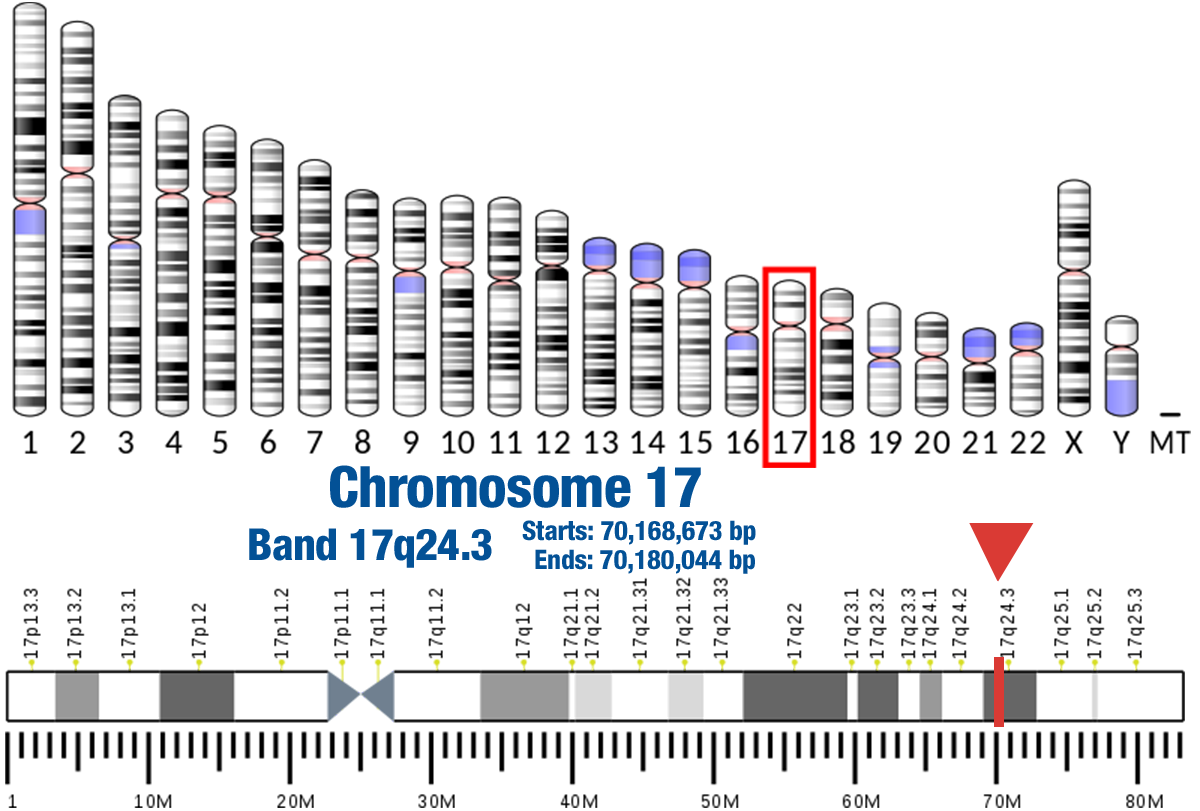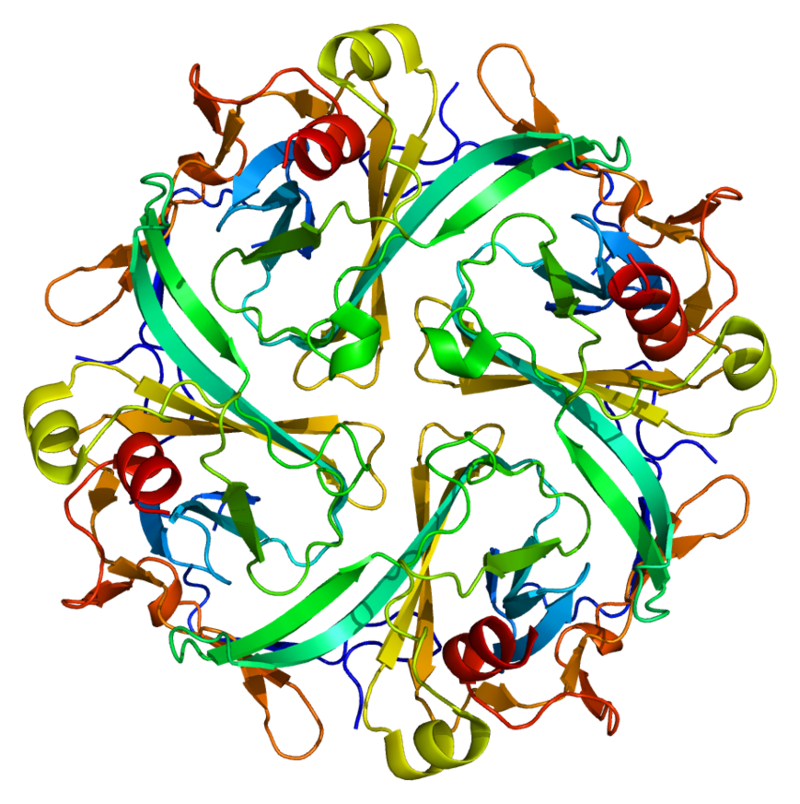
Potassium channels are present in most mammalian cells, where they participate in a wide range of physiologic responses. The protein encoded by this gene is an integral membrane protein and inward-rectifier type potassium channel. The encoded protein, which has a greater tendency to allow potassium to flow into a cell rather than out of a cell, probably participates in establishing action potential waveform and excitability of neuronal and muscle tissues. Mutations in this gene have been associated with Andersen syndrome, which is characterized by periodic paralysis, cardiac arrhythmias, and dysmorphic features. [provided by RefSeq, Jul 2008]
- Ion transport
- Potassium ion transport
- Regulation of skeletal muscle contraction via regulation of action potential
- Magnesium ion transport
- Cellular potassium ion homeostasis
- Andersen cardiodysrhythmic periodic paralysis
- Short qt syndrome 3
- Atrial fibrillation, familial, 9
- Familial short qt syndrome
- Periodic paralysis
KCNJ2 Localizations – Subcellular Localization Database
Gene Location



